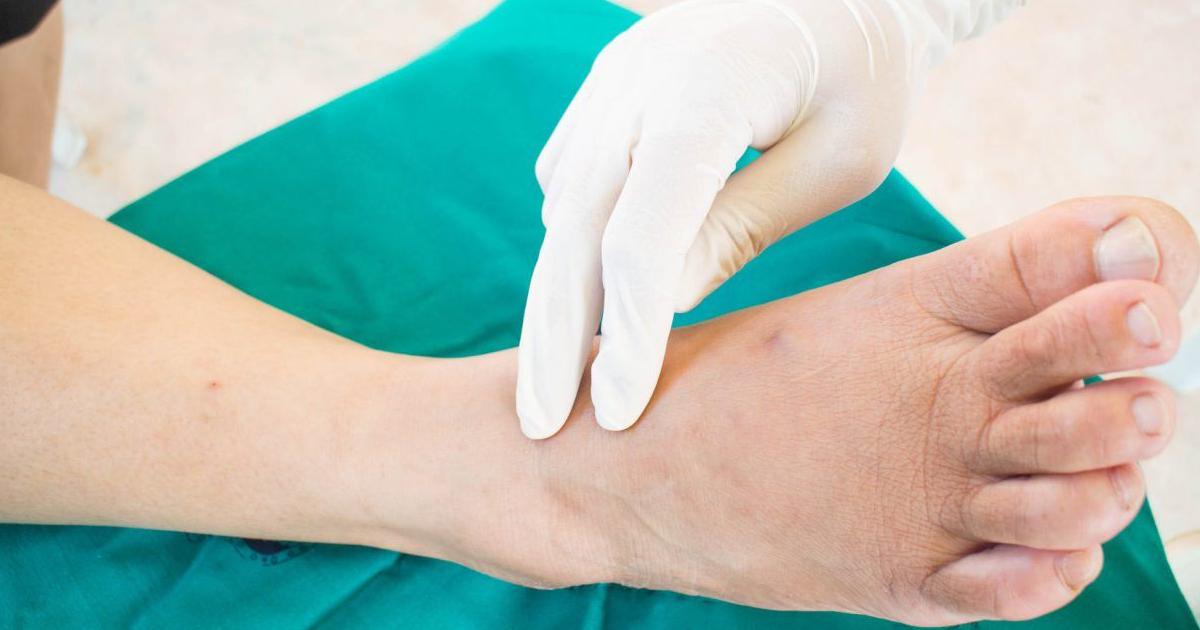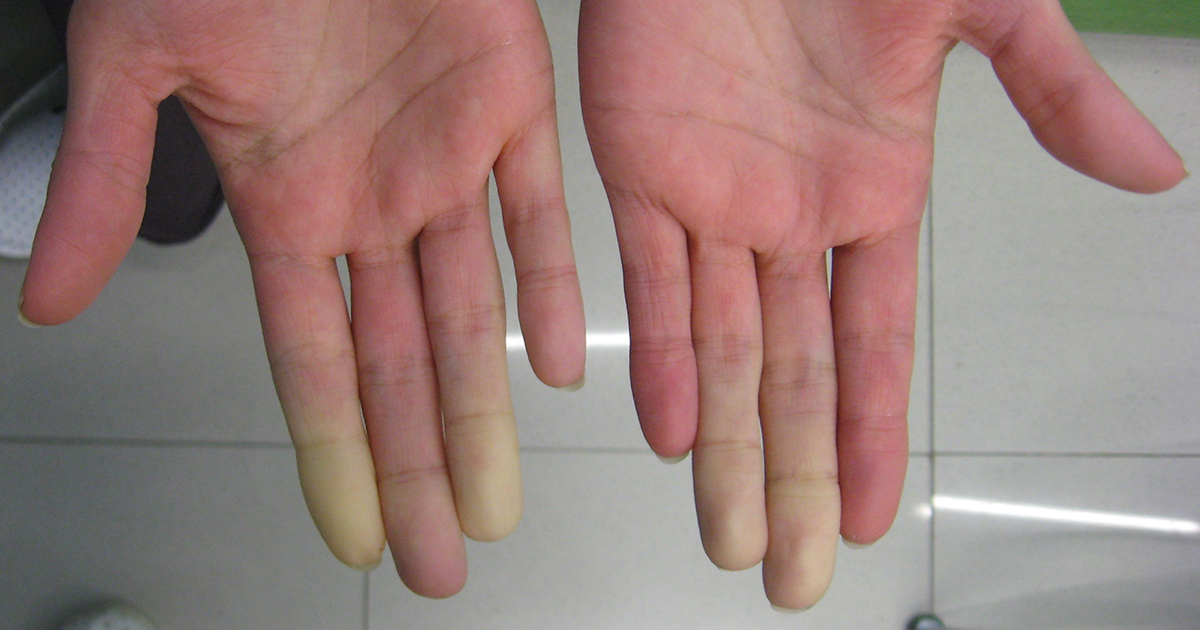Comprehensive Guide To The Symptoms Of POEMS Syndrome
POEMS syndrome, also known as Takatsuki syndrome, is a rare syndrome that is the result of an underlying disorder of the plasma component in the blood. The increased number of plasma cells in the blood of these individuals causes an overproduction of a type of protein that can damage other organs in the body. Although the exact cause of POEMS syndrome is not clear, studies suggest irregularly elevated levels of vascular endothelial growth factor has an influence on its development. POEMS syndrome is usually diagnosed by confirming particular immunologic abnormalities in the cerebrospinal fluid or the liquid element of the blood called serum. Elevated levels of the VEGF and M-proteins are usually present in laboratory examinations of the blood serum and cerebrospinal fluid. The acronym POEMS stands for five clinical characteristics that manifest in individuals with the syndrome. When left untreated, POEMS syndrome can be extremely debilitating to an individual's everyday life and lead to life-threatening complications.
Polyneuropathy

The 'P' in the acronym POEMS stands for polyneuropathy, which refers to damage to multiple peripheral nerves around the body. Polyneuropathy affects various nerves in different regions of the body simultaneously. This condition can affect the nerves responsible for movements, feeling, or both. Autonomic nerves that control functions like blood pressure, bladder, heart rate, and digestion may also be affected. Individuals with POEMS syndrome often experience tingling, numbness, weakness, and pain in the affected regions of the body. In POEMS syndrome, polyneuropathy typically begins in the lower extremities such as the feet and the toes, and then it works its way upwards through the rest of the body. With the proper intervention and treatment, polyneuropathy can be stopped before it significantly influences the nerve function in the arms and hands. The most common complications that occur with this condition include a lack of coordination and balance that frequently results in falls and injuries. In addition, the numbness that results from polyneuropathy can cause an individual to sustain skin damage and burns from the inability to feel pain. Furthermore, the injuries the condition results in can cause infections to develop if burns and cuts go unnoticed.
Uncover the next symptom of POEMS syndrome now.
Organomegaly

The 'O' in POEMS stands for organomegaly or the enlargement of one or more organs. The most common organ to become enlarged in POEMS syndrome is the liver. This is referred to as hepatomegaly and around sixty-six percent of individuals with POEMS syndrome will develop it. Around thirty-three percent of individuals with POEMS syndrome will develop an enlarged spleen or splenomegaly. The enlargement and disease of the lymph nodes or lymphadenopathy may also occur in POEMS syndrome patients, however, it is much rarer than hepatomegaly and splenomegaly. Symptoms an individual with an enlarged liver may experience are fatigue, nausea, vomiting, feeling full, pain in the abdomen, and jaundice. An enlarged spleen typically will not cause any symptoms, but it can lead to complications such as reduced numbers of red blood cells, white blood cells, and platelets in the blood. This can result in frequent infections and increased severity of bleeding. In addition, an enlarged spleen is at more of a risk of rupturing. Swollen lymph nodes as a result of POEMS syndrome can cause symptoms such as pain and tenderness in the lymph nodes, and lymph nodes that feel harder and larger than normal. Complications that can occur as a result of this include the formation of an abscess and an infection in the bloodstream.
Continue reading to learn more about the symptoms of POEMS syndrome now.
Endocrinopathy

Endocrinopathy or abnormalities of the endocrine system and its function may occur in individuals with POEMS syndrome. Gonadal failure is a condition where the ovaries in females and testes in males do not function properly, and around seventy percent of individuals with POEMS syndrome develop it. The results of this include amenorrhea or stoppage of the menstrual cycle, gynecomastia or abnormal enlargement of the breasts, and impotence. Around half of individuals with POEMS syndrome will develop an endocrine disease called diabetes mellitus, which is a disease where the beta cells of the pancreas do not secrete the insulin needed to mediate glucose in the blood. Additionally, many individuals with POEMS syndrome will experience issues with the functioning of the thyroid gland such as hyperthyroidism or hypothyroidism. Furthermore, POEMS syndrome may cause problems with the functioning of the adrenal glands, which are responsible for the release of aldosterone and cortisol.
Learn more about POEMs syndrome symptoms now.
Monoclonal Plasmaproliferative Disorder

Monoclonal plasmaproliferative disorder, a common occurrence in POEMS syndrome, can be best defined as an overproduction of a single clone of plasma cells. Plasma cells are an imperative element of the immune system and are produced in the bone marrow. Plasma cells secrete antibodies that combat microorganisms, toxins, and other foreign substances when they invade the body. This excessive antibody is referred to as the M-protein. When this one type of plasma cell that grows out of control makes the M-protein that also exceeds others in quantity, the numbers of other types of antibodies decrease. This increases the individual's susceptibility to invasion of bacteria and infection because they have a less diverse antibody population to fight infections and bacteria off. In addition, excessive M-proteins can invade and damage other healthy tissues around the body including vital organs. The kidneys and the bones are both common tissues affected by the excessive M-protein presence in the body.
Get familiar with the next symptom of POEMS syndrome now.
Skin Changes

Another common symptom that occurs in individuals with POEMS syndrome is skin changes. Some common skin changes include hyperpigmentation, or abnormal darkening of the skin; hypertrichosis, or excessive growth of hair; and sclerosis, or the thickening and hardening of the skin. Other physical abnormalities that occur in patients with POEMS syndrome include hyperhidrosis or excessive sweating, and extremities that appear dusky or dark. The excessive monoclonal proteins or M-proteins in the bloodstream of patients with POEMS syndrome can stick together and deposit in the skin. A condition called Raynaud's disease may also occur in individuals with POEMS syndrome. This is where blood vessels in the hands and feet experience spasms that result in reduced blood flow to the area. These spasms occur as a reaction to stress or drastic changes in temperature. In addition, general widespread inflammation of the skin commonly occurs in POEMS syndrome patients. This causes rubor in the skin or appears as redness in the skin.
